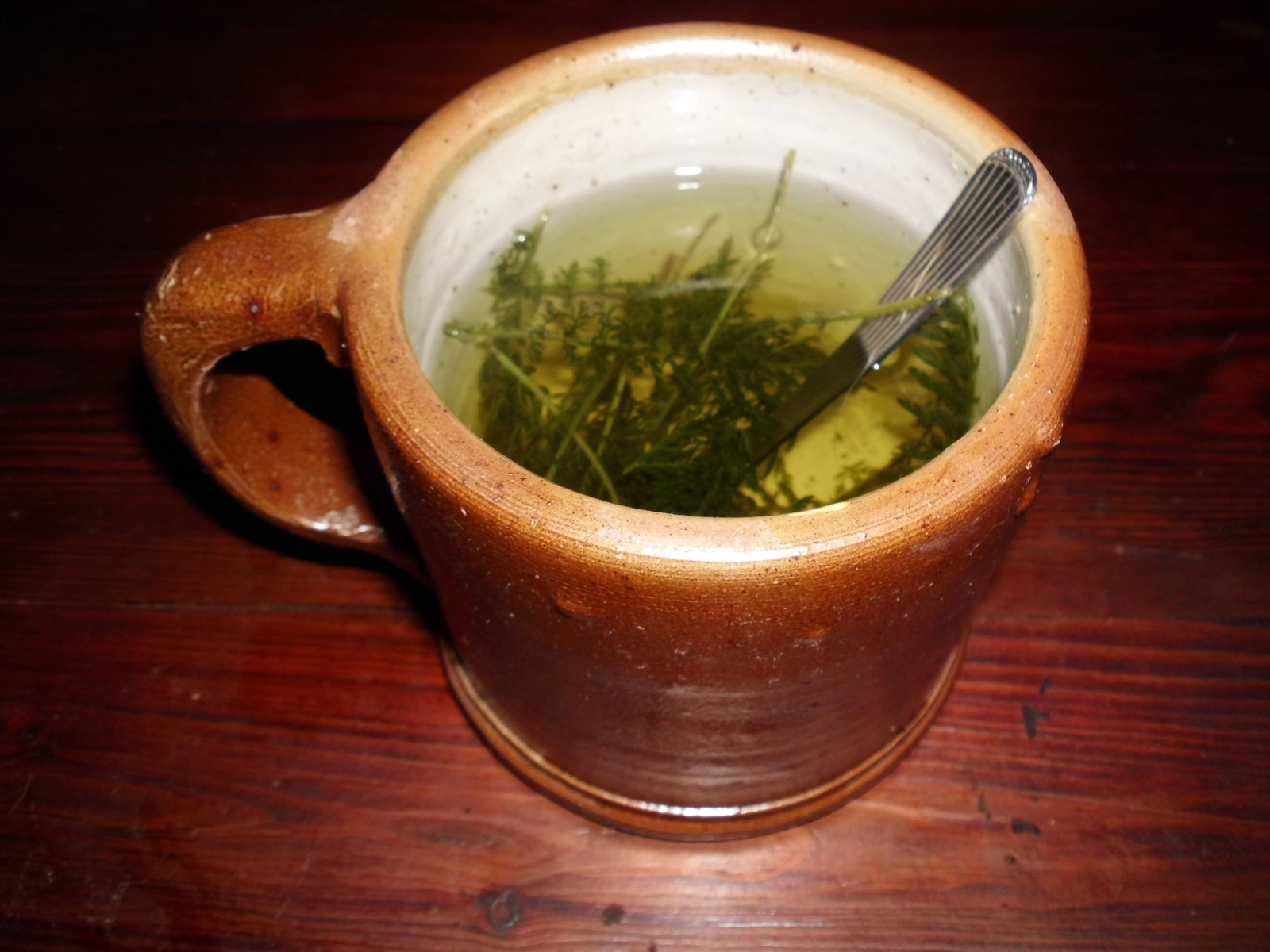Hibiscus tea- grown in places like India and taste just like cranberry juice.
Yarrow- pick the new leaves in spring. Quite a spicy flavor.
Norway spruce- in spring you can pick the new light green growth and make tea from it. Has a fresh taste and is rich in vitamin C.
Linden flower tea- very mild and delicate flavour, but yummy.
Chamomile- mild taste, a natural antiseptic.
Mead wort- special flavor, don't drink to much of it as it contains salicylic acid. Unless you have a fever or a headache that is.
Blackcurrant- pick the leaves. The taste remind a lot of that of the berries.
Common polypody- harvest the roots. Has a sweet bitter liquorice flavor. Don't drink to often.
Common heather- flowers and leaves. Refreshing taste, some compare it to that of regular tea.
Elderberry- pick the flowers, dry them (or put them in the freezer), delicious with sugar and a little bit of lemon.
Common lilac- taste like liquid summer. Preferably use the blue redish flowers and not the white (they taste less).
